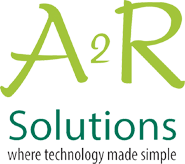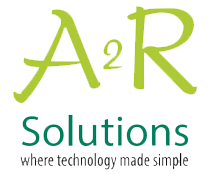What Is an Enterprise Data Center: Exploring Core Components, Benefits, and Challenges
In the digital age, businesses rely heavily on data and information technology to drive their operations. This reliance has led to the evolution of enterprise data centers, which play a pivotal role in ensuring efficient data management, storage, and processing. In this article, we’ll delve into the world of Enterprise Data Center, understanding their core components, advantages, challenges, and effective management strategies.
Introduction
In today’s technologically-driven business landscape, enterprises generate and process massive amounts of data daily. This has led to the rise of enterprise data centers, which serve as the nerve centers for data storage, management, and processing. These data centers are essential for businesses to maintain their operations, optimize performance, and achieve scalability.
Understanding Enterprise Data Centers
An enterprise data center is a centralized facility where an organization’s IT operations and equipment are concentrated. It houses various critical components, including servers, networking equipment, storage systems, and security mechanisms. These components work collaboratively to manage data flow, ensure data security, and support the organization’s digital infrastructure.
Core Components of an Enterprise Data Center
- Servers: Servers form the foundation of any data center. They host applications, websites, databases, and more, enabling communication between various devices and users.
- Networking Equipment: This includes routers, switches, and firewalls that establish and maintain network connectivity, ensuring smooth data transmission.
- Storage Systems: Enterprise data centers incorporate storage solutions like SAN (Storage Area Network) and NAS (Network-Attached Storage) to store and manage vast amounts of data.
- Power and Cooling Infrastructure: To prevent overheating and ensure uninterrupted operation, data centers are equipped with efficient cooling systems and backup power sources.
- Security Mechanisms: Advanced security measures like firewalls, intrusion detection systems, and encryption protocols safeguard sensitive data from unauthorized access.
Advantages of Utilizing an Enterprise Data Center
- Enhanced Data Security: Enterprise data centers offer robust security protocols, reducing the risk of data breaches and ensuring compliance with industry regulations.
- Reliable Performance: These centers provide high availability, minimizing downtime and maintaining consistent performance levels.
- Scalability: As businesses grow, data centers can easily scale up their resources to accommodate increased data processing and storage needs.
- Cost Efficiency: Consolidating IT infrastructure in a data center reduces the need for on-premises maintenance, resulting in cost savings.
- Disaster Recovery: Data centers implement effective backup and recovery strategies, minimizing data loss in the event of a catastrophe.
Challenges Faced by Enterprise Data Centers
- Initial Costs: Setting up an enterprise data center involves significant upfront investment in infrastructure, equipment, and staffing.
- Complexity: Managing diverse components and ensuring their seamless interaction requires specialized skills and knowledge.
- Energy Consumption: Data centers consume substantial energy for operation and cooling, contributing to environmental concerns.
- Security Concerns: The growing threat of cyberattacks necessitates constant monitoring and updates to maintain data integrity.
Efficient Management of Your Enterprise Data Center
To ensure optimal performance and longevity of an enterprise data center, consider these strategies:
- Regular Maintenance: Schedule routine maintenance to identify and address potential issues before they escalate.
- Resource Monitoring: Monitor server usage, network traffic, and storage capacity to allocate resources efficiently.
- Security Updates: Stay updated with the latest security patches and protocols to safeguard against vulnerabilities.
- Capacity Planning: Plan for future growth by predicting resource requirements and expanding as needed.
Disadvantages of an Enterprise Data Center
- High Initial Costs: Setting up and maintaining a data center demands substantial investment.
- Maintenance Complexity: Managing complex infrastructure and equipment requires specialized skills.
- Space and Location: Data centers need ample physical space and a suitable location, which can be challenging to find in urban areas.
Conclusion
In the modern business landscape, enterprise data centers are the backbone of efficient data management and IT operations. They offer enhanced security, reliability, and scalability, while also presenting challenges such as initial costs and maintenance complexity. By implementing effective management strategies, businesses can harness the benefits of enterprise data centers while mitigating potential drawbacks.
A2RSolutions stands out as the ultimate accounting software companies in Dubai, renowned for its exceptional offerings; A2RSolutions delivers top-tier accounting software solutions, encompassing Intuit Quickbooks Online in Dubai. We offer comprehensive online accounting software for small business Dubai, along with sage 300 erp in Dubai. Simplify your business operations with our cutting-edge software tailored for companies in Dubai. Get sage 50 accounting software Dubai at unbeatable prices with our exclusive offerings.



